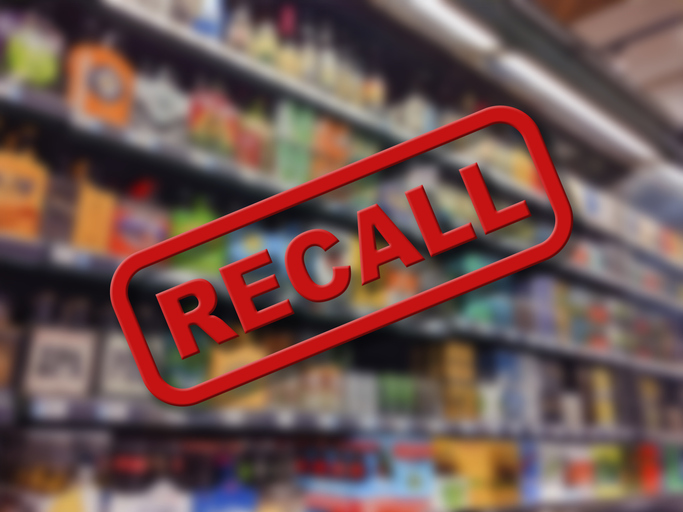The U.S. Food and Drug Administration (FDA) recently announced a public “listening session” about “modernizing” its product recall system.
The FDA has the authority to recall drugs, medical devices, and foods for human or animal use, and cosmetics, biologics, and tobacco products for human use. Considering the FDA’s enforcement powers, which include criminal sanctions, most companies conduct voluntary recalls. The FDA can also request or mandate recalls. FDA-regulated companies remove or correct marketed products that violate FDA rules and present a risk of injury, gross deception, or are otherwise defective according to standards outlined in the Code of Federal Regulations.
Critics say the recall process is outdated, inefficient, and dangerously slow.
Drug and Medical Device Recalls
The first quarter of 2023 marked the most pharmaceutical recalls in a single quarter in the past 18 years, with 144 events, according to Sedgwick’s Recall Index report.
“The number of units impacted increased 1,071.8 [percent] to 49.5 million after an unusually low number of units were recalled in Q4 2022,” states Sedgwick’s news release on the report.
Deviation from good manufacturing practices was the most common reason for pharmaceutical recalls in 2022, says Sedgwick.
Medical device recalls increased by 4.6 percent in the first quarter of the year to 252 events. Sedgwick says manufacturing defects account for the greatest proportion of medical device recalls, and “quality concerns were the leading cause in terms of units impacted, with 68.5 million or 82.3% of all recalled devices.”
One reason for the increases may be due to backlogs during the pandemic.
Examples of Recalls
Significant medical device recalls associated with deaths and serious injuries include Allergan’s breast implant products(2019), Medtronic’s HeartWare ventricular assist device (2021), and Ethicon’s power morcellators (2014; updated in 2023).
Drug recalls include Lupin Pharmaceutical’s oral contraceptive Tydemy for insufficient amounts of vitamin C, which “may have reduced effectiveness” and “could result in unexpected pregnancy.”
Diabetes drug Metformin has a history of recalls due to the presence of potential carcinogen N-nitrosodimethylamine. Metformin was recalled in 2023 by Teva Pharmaceuticals for the same reason.
“Recalls are a time-consuming mess,” said Denise Armellini, M.D., an endocrinologist.
Armellini says she has never received a recall notice from generic Metformin manufacturers. To keep current, Armellini reviews medical websites for recalls, but “frantic patients” sometimes let her know first. After checking the FDA website, where the number of companies and batches can be daunting, she refers patients to their pharmacy for further help.
The FDA posts various recall databases, such as “recalls, market withdrawals, and safety alerts,” enforcement reports, MedWatch, recalls and withdrawals of pet food and products, withdrawals of biologics, medical device safety, and recall and alerts regarding cosmetics.
Recall Process
Product recalls are generally complex, time-consuming, and expensive.
The FDA published Recall Guidance in 2022 to provide industry with information about recall steps, including the identification of and response to product problems, recall communications, and the FDA’s role in recalls.
While somewhat helpful, the guidance doesn’t address several critical issues, says Hans Beinke, an industry consultant, and a former vice president of Siemens Healthcare.
“Companies should not wait for the FDA to assess health hazards and risks but should perform their own such assessments in determining whether and how to conduct a recall,” said Beinke.
Problems Emerge
Though problems have plagued the recall system for many years, the last 10 years have been much worse, says Guillermo Ramas, CEO and founder of Notisphere, a software company that facilitates FDA-regulated recalls.
“The recall system employs practices from the 1970s, doesn’t take advantage of modern technologies, and is extremely inefficient and slow,” said Ramos. “This puts patients at great risk, costs recalling companies millions of dollars, and consumes thousands of hours of hospital time.”
Problems have included lack of standardization, poor communication, reliance on mailed paper notifications, disorganized databases, difficulty identifying products and tracking them down, confusion about responsibilities, and users’ failure to respond to recall notifications.
“Medical providers expend enormous effort reviewing thousands of alerts while 95 percent aren’t relevant,” said Ramas. “Multiple databases, notices, press releases, and safety alerts for the same recall add to the confusion.”
Recalled Products Still in Use
Delays in communicating with customers and patients are common, says Ramas.
“It can take weeks or months for recall notices to get to the right people in a health care system and notices may never arrive,” said Ramas. “There can be products in hospital inventory for up to two years after the product was recalled.”
The confusion directly impacts patients because recalled products continue to be used although they have been recalled. One ongoing recall nightmare is Philips Respironics’ recall of 5.5 million sleep apnea and ventilator devices manufactured between 2009 and 2021.
Almost a year after Philips publicly initiated the recall, the FDA required Phillips to notify all its customers, including patients and health care providers. The FDA said customers were unaware of the recall and the health risks of continuing to use the device, and the company’s previous efforts were “inadequate.”
Listening Session
The FDA said its listening session will provide “an opportunity for stakeholders to share information and feedback about topics related to recall modernization, for FDA-regulated products.”
Discussion topics include general recall preparations and contingency planning; creating successful recall strategies; methods to reach underserved communities; initiating a recall; strategies for public warning, press releases, social media, and other communication tools; increasing the efficiency and effectiveness of recall information exchange; ensuring effective recalls; terminating a recall; and strategies for reducing recall recurrence for similar situations.
The FDA says its listening session will raise awareness and jump-start fixes that will benefit patients, medical providers, and industry.
Dvorah Richman, J.D., (dvorahrichman@gmail.com) writes from Fairfax, Virginia.
For related articles, click here.
